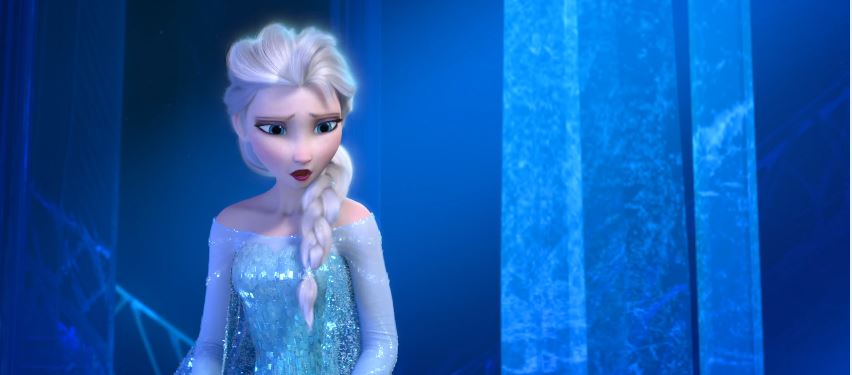Frozen‘s Original Ending Would Have Taken the Film in a Completely Different Direction
And not in a good way.

No film is immune to major changes throughout production, not even Rogue One. If the Star Wars standalone had stuck to its original ending, we’d have a different opinion of the movie. The same could be said for Disney’s animated feature Frozen, which originally envisioned Elsa as the sort of villain we’ve seen many times before.
According to producer Peter Del Vecho, Elsa was supposed to be a “self-proclaimed Snow Queen” with no relation to Anna. “They weren’t even royal,” he told EW. “We started out with an evil female villain and an innocent female heroine and the ending involved a big epic battle with snow monsters that Elsa had created as her army.”
The film originally kicked off with a prophecy warning that “a ruler with a frozen heart will bring destruction to the kingdom of Arendelle.” Everyone assumes it’s Elsa because she was stood up at the alter and froze her heart so she would never love again. In a case of “Arendelle hath no fury like a woman scorned,” she unleashes an army of snow monsters to attack the town and Kristoff has “a Han Solo moment” while helping out Anna.
This next bit might explain why Prince Hans has a sudden change in personality in the final cut of the film:
To halt Elsa’s attacking army, the two-faced Prince Hans triggers a massive avalanche—not caring that the avalanche also puts Anna, Elsa and all of Arendelle in jeopardy. Anna realizes Elsa is their only hope, so she convinces her to use her powers to save the kingdom. The twist is that the prophecy from the beginning is actually not about Elsa, but about Hans—he’s the one with a metaphorical frozen heart because he’s an unfeeling sociopath. Elsa’s heart is then unfrozen allowing her to love again.
Del Vecho says they changed the ending not only because it had been done before, but also because it made Elsa unrelatable. “We had no emotional connection to Elsa—we didn’t care about her because she had spent the whole movie being the villain. We weren’t drawn in,” he added.
It’s a good thing they made these changes because a story about two sisters failing to understand one another is far more compelling than yet another one about a woman turning evil because of a broken heart. Kudos.
(via Huffington Post, image via screencap)
—The Mary Sue has a strict comment policy that forbids, but is not limited to, personal insults toward anyone, hate speech, and trolling.—
Follow The Mary Sue on Twitter, Facebook, Tumblr, Pinterest, & Google+.
Have a tip we should know? tips@themarysue.com